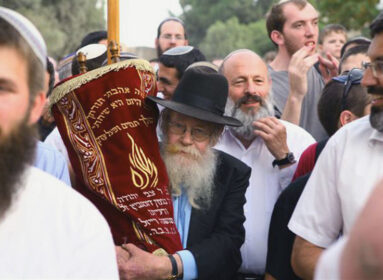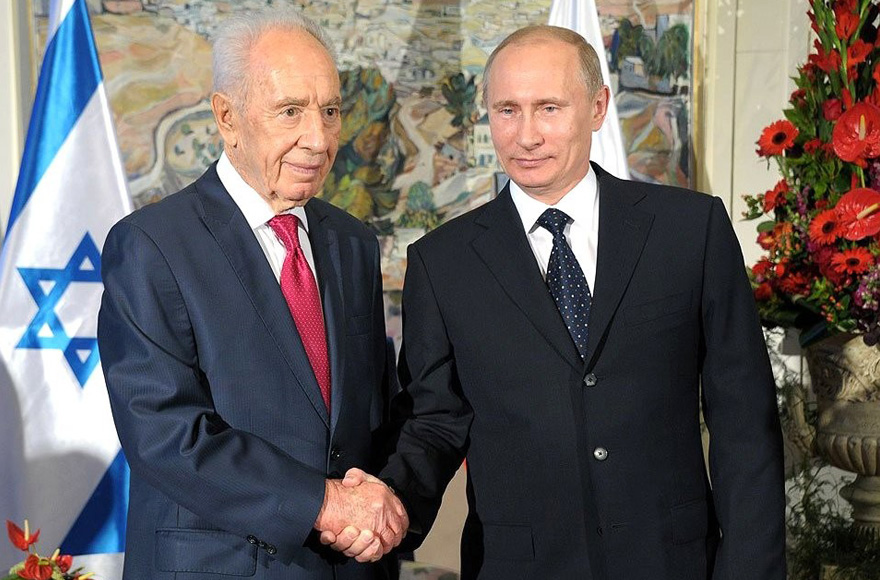Eight months ago, Dylan Sodaro was just another American college sophomore studying abroad. But his trip was to morph unexpectedly into an educational experience of a different kind, as the “Arab Spring” spread to Cairo.
A Norwalk native, Sodaro grew up attending Temple Shalom, where his mom, Shelly Sodaro, worked, and where he served as a teacher’s assistant. When Shelly took a job at Temple Sinai in Stamford, Dylan maintained his membership at Temple Shalom. The family is active in both Jewish communities.
Home on summer break, the Syracuse University student spoke with the Ledger about his adventures in Cairo and unexpected semester in Lebanon.
Why did you choose to do your year abroad in Cairo?
A: A couple of months into my freshman year in 2009, I had contemplated dropping out of school for a year to travel and see what I wanted to do in life. I had traveled a lot during high school. Those experiences gave me the bug for travel. I decided to do a year in Egypt, followed by a year in Israel. I chose Egypt because of the historical Jewish connection, and because I have an affinity for politics. The region has been very fascinating historically to me. In June, I bought my one-way ticket to Cairo, hoping for the best and expecting the worst. I landed last August, having enrolled at American University in Cairo for a year.
How did your Jewish identity affect your experience in Egypt?
A: I was 19 and fearless, and I wasn’t worried. But several Jewish adults in my life were very concerned about my Jewishness, and for good reason, because of the rhetoric we hear in the media here. They said I shouldn’t tell people I’m Jewish, and that I should be okay because I have an Italian last name and there are relations between Israel and Egypt. My Jewish identity wasn’t the first thing I brought up to people, and I had to feel a level of comfort with locals I met in order to share it with them. There were tons of questions and I happily answered them. I also dispelled misconceptions. I never met a Jewish local in either Egypt or Lebanon – but not for lack of trying. That was one of the bigger disappointments in my travels. Most Jews left Egypt in the ‘50s. There’s a synagogue and a Jewish community in Cairo and they fly in a rabbi from France and have Sephardic High Holiday services. On Rosh HaShanah, I happened to be traveling in Dubai, but I went for Yom Kippur. Even though I’m not very religious, I’m really involved in the Jewish community and I was the most religious study-abroad student. Seventy-five percent of the Jews in Cairo work at the Israeli embassy and American State Department officials also attend. I had break-fast at one of the officials’ apartments. In December, after finals, I went to Israel with some friends for a few days. I stayed in a hostel in Jerusalem, then flew home for a few days. I went back to Israel to visit cousins in Efrat and Ra’anana before returning to Cairo for spring semester. I made my way through northern Israel, went to Jordan, and then headed for Eilat to cross into Egypt on Jan. 25.
What happened to you during the protests in Cairo?
A: I got back to Cairo and went to the AUC dorms. I was one of the “veterans” so I took the new students out to eat and they told me about protests in the city a few days earlier. Because I’d been traveling, I’d been disconnected from the news, so hadn’t heard. Those first protests had been on a Tuesday, a peaceful gathering in Tahrir Square. I later learned that the police had broken it up with teargas, and my friends told me that the police had incited the crowd to violence by throwing stones.
Through the grapevine and social-network sites, we heard that there would be a big protest on Friday and I didn’t want to miss out. The dorms are on an island in the Nile called Zamalek, and police closed off the bridges to protect it. So, Thursday night a few of us planned to sleep at my friend’s apartment, a block from Tahrir Square. We knew that the protest would start after morning prayers on Friday. So that morning, we had breakfast and came back to the apartment until we heard chanting outside, and saw that people had started gathering on the street. Cairo always had a huge police presence in the downtown area, and on Friday, they were in riot gear and blocked off all the entrances to the square, in an effort to deter protestors. But the protestors weren’t giving up. It was very peaceful; we heard a lot of chanting and saw groups coming together from side-streets and moving toward the square.
From what I saw, I would say that the violence was started by the police. They were slowly pushing the crowds back and then were shooting teargas canisters into the crowd. It slowly escalated. Downtown Cairo was full of teargas. When you’d run from a canister in one place, you’d encounter police shooting rubber bullets in another place. Police were driving minivans right through the crowds and shooting teargas and compression grenades out through the roof. The people organized to stop the vehicles by putting up barricades of rocks and street signs.
How and why did you leave Cairo?
A: The phones were down until the next day, and after I called my family to let them know that I was all right, I got a call from Syracuse University saying that they’d decided to cancel the semester in Cairo. They offered a semester in London or Istanbul, but I’d chosen the Middle East because I wanted to experience the Arab world and learn Arabic. They suggested American University of Beirut. While I was waiting with two friends to take a State Department flight out of Cairo, we went back onto the streets to see the damage and talk with the locals. It was very peaceful, and a lot of people had come out to clean up the streets. There’s a young population with huge unemployment and poverty. People my age and college graduates don’t have jobs and that was the real catalyst.
What was it like to be in Lebanon as a Jew?
A: There is a small Jewish community in Beirut. I organized a Passover seder for the study-abroad students. We made matzo but we didn’t have a Haggadah, so we improvised. In Egypt, you tell someone you’re Jewish and it doesn’t faze them but if you’ve been in Israel, you can’t go to Lebanon and so a lot of Americans don’t go and the Lebanese don’t have the same opportunity as Egyptians to meet Jews.







 Southern New England Jewish Ledger
Southern New England Jewish Ledger















